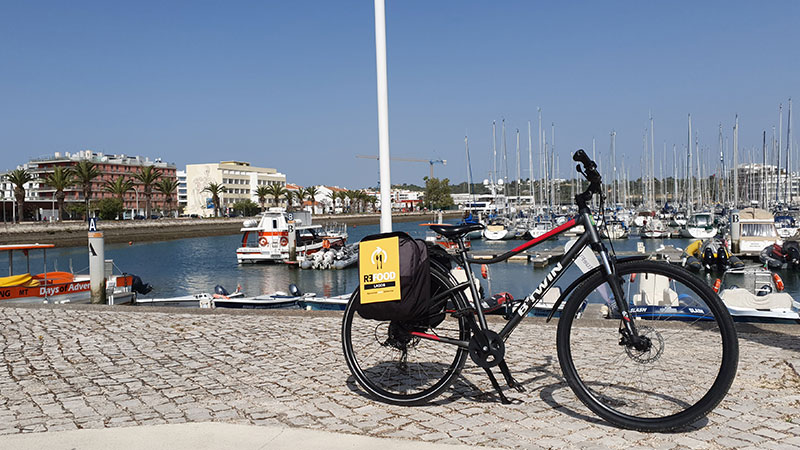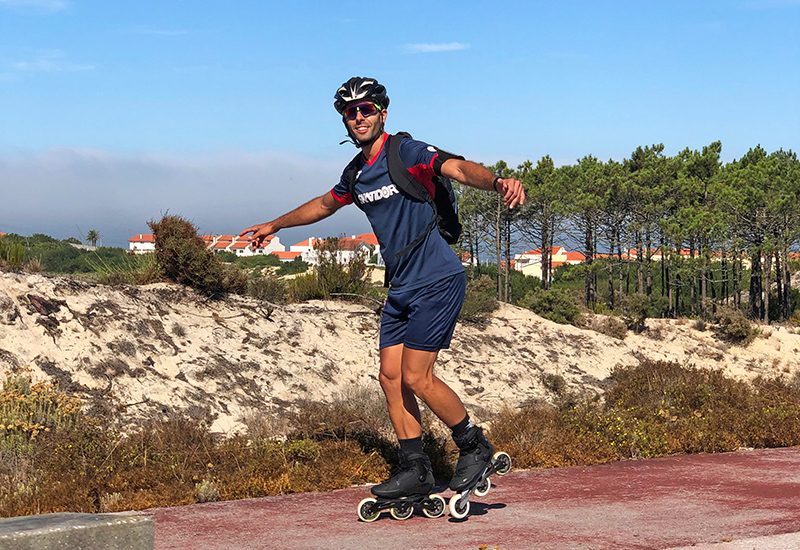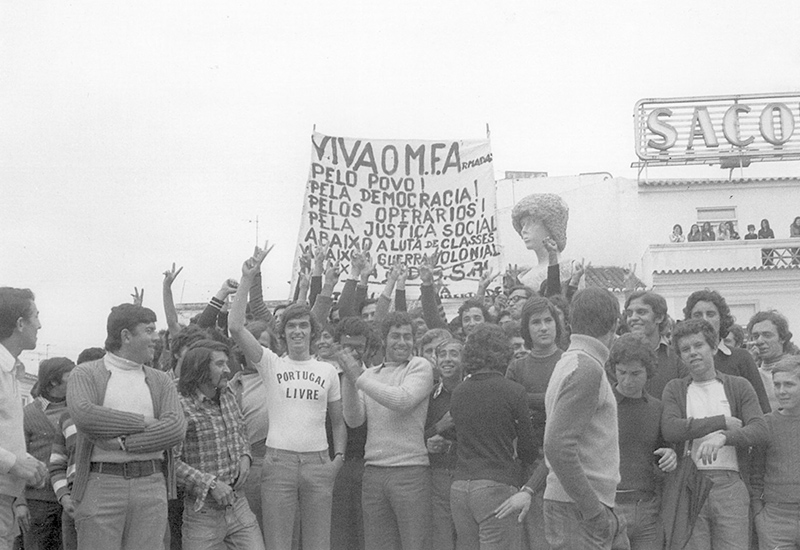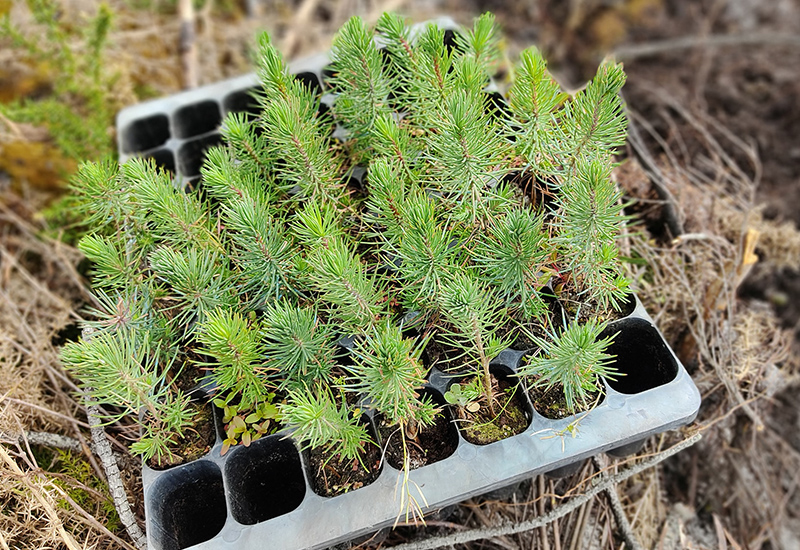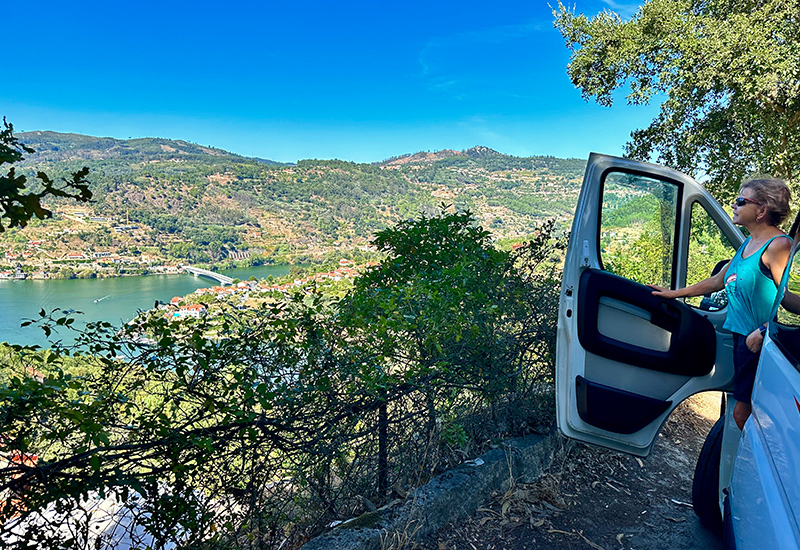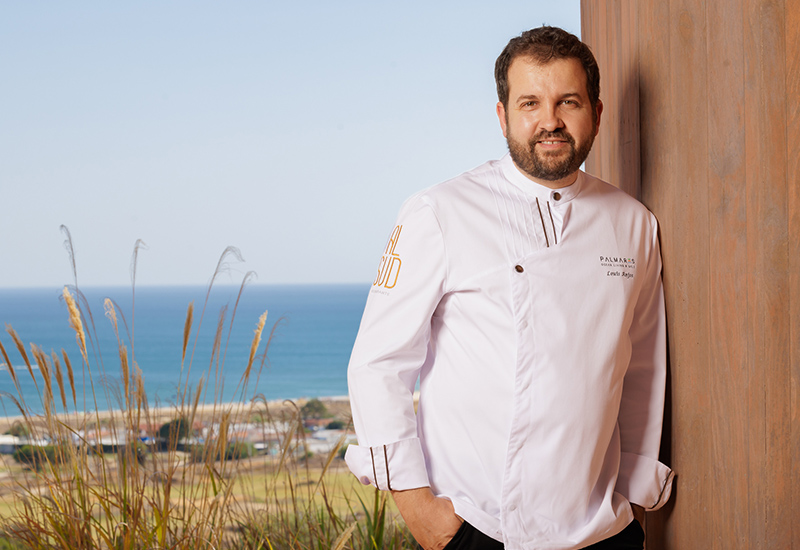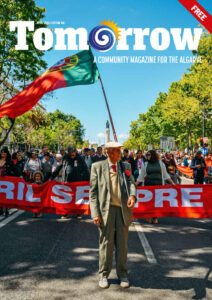As the sun sets on the Wednesday night market in Lagos, the sky loses its colour, quickly fading from grey to black. An October chill settles over the small parking lot that doubles as a farmers’ market in the city centre.
Once a notorious and raucous weekly event brimming with food trucks, live music and crowds of laughing people, the market has been turned into a shadow of its former glory by a global pandemic. A few buyers mill about, picking through onions and weighing pumpkins in their palms, but the scene is largely quiet. Only two food trucks remain and the corner tables are largely empty. Fluorescent lights spread a harsh glare onto the asphalt, white beacons against the backdrop of an inky sky. The local artisans and farmers slowly begin to pack up their unsold goods. A few lone vehicles drive in to load up their unsold crates of potatoes, fresh herbs and miniature mangoes.
In the far corner, a group wearing black t-shirts with a Refood logo await the moment when they can begin their work. Made up entirely of volunteers, it is the first time the organisation has attempted to ask for leftovers at the local market. As I join them, the work begins.
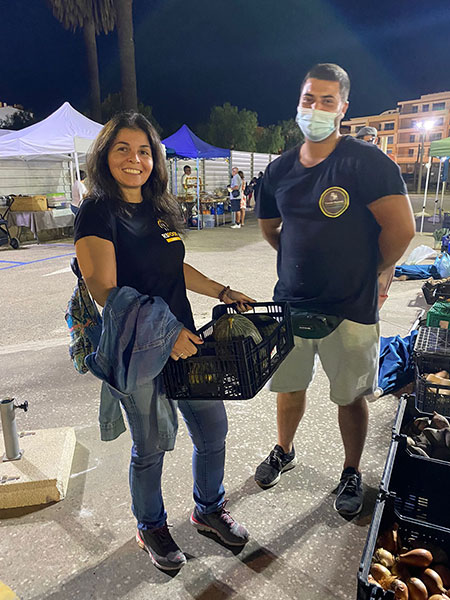
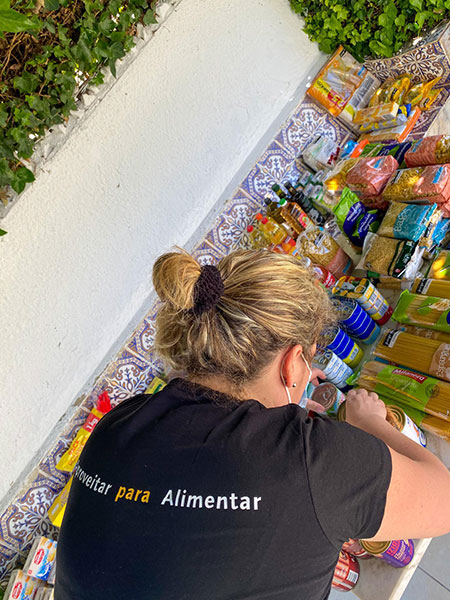
They start with the bread, introducing themselves and explaining that they will take any food that would otherwise go to waste. They will be responsible for taking it to a pick up point, where it will then be distributed by local churches and social services to families and individuals in need.
“The numbers of hungry people in the Algarve has greatly increased since the pandemic began,” explains Eunice Faria, one of the head coordinators for the Lagos branch of Refood. Although she doesn’t have exact figures, Faria maintains that the change has been quite drastic as so many local people depend on tourism for their livelihood.
“Refood started with one man on one bike collecting from one restaurant,” Faria explains. Founded a decade ago in Lisbon by Hunter Halder in response to the world financial crisis, the basic premise is to use a circular economy to stop waste and feed people. From a bootstrap initiative in which one guy collected leftovers from a single restaurant, it has evolved into a national organisation with 60 centres and over 7,000 volunteers all over Portugal.
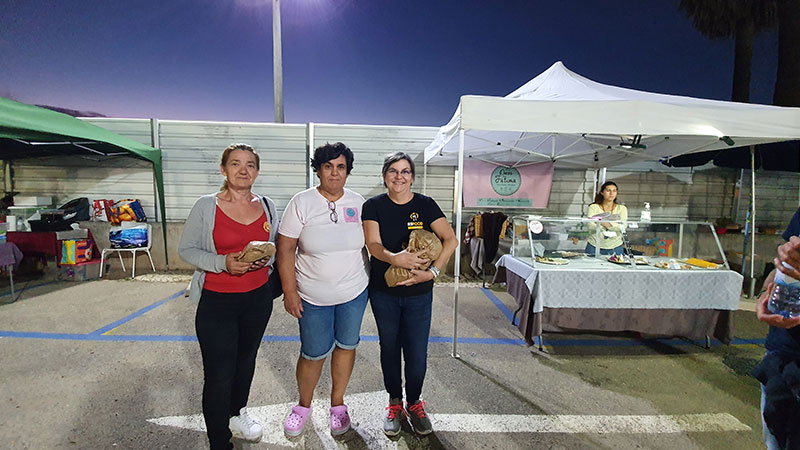
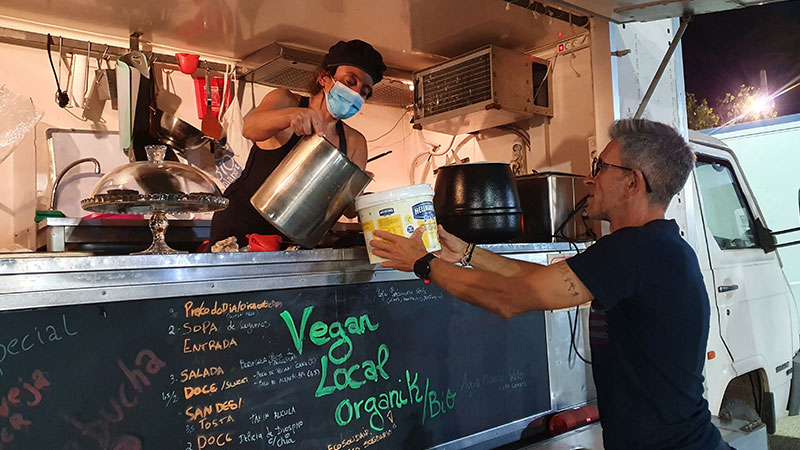
Food that would normally be thrown away is gathered from restaurants, markets, grocery stores, events, and producers. Dropped at churches or collection points, it is then distributed to people in need.
Here in the Lagos market, the vendors are so willing to help they even offer to make extra bread each week. But this, says Faria, is against the principles. “We don’t want people making things specifically for us, the idea is that we only collect what would otherwise be wasted,” she says, juggling a few loaves of unsold bread from Doce de Fatima.
By the end of their rounds, the small gathering of volunteers has grown from four to six and they leave the market with their hands full of leftover baked goods, a large pot of soup, baskets of potatoes and a crate full of apples.
For the first attempt, it was a successful endeavour and they are pleased with the start. At 9pm, hungry families in the area will come to a local church to collect what has been given. The concept is simple and the more volunteers who give a few hours a week of their time, the more local people Refood can feed. If you’ve been searching for a way to give back but you don’t have a lot of extra time, this is certainly a good place to start. Individuals have the power to change the world. When individuals work together, that power grows exponentially.
For more information and to find out how you can help, visit www.re-food.org
